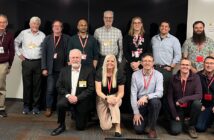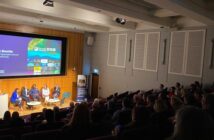The Environment Agency’s Chief Scientist Group has released a groundbreaking report, supported by an Open University (OU) academic, setting out current research and scientific understanding of drought in the UK.
For the first time, this report sets out a holistic view of our understanding of drought, its multiple causes, and current and future impacts on our environment, economy and communities.
While we are moving towards the coldest months, 2023 has marked the hottest June on record, following a summer of blistering temperatures in 2022. This has led to drought once more become a topic of concern in England. Even so, the causes and impacts of drought remain poorly understood.
What makes drought so difficult to understand? Droughts are complex events that vary in duration, time of year, location, severity, and society’s preparedness and response. The infrequency of drought means there is limited data and experience of them. This is further complicated by uncertainty in how climate change may impact drought in years to come.
England’s approach to drought management has developed incrementally over the last century, adding new experience from each new drought. Although this has proven very effective, a better understanding of future droughts could lead to big improvements in drought planning and management.
This report is based on invited contributions from 40 academic and drought experts from 13 different universities, research institutes, and consultancies.
Kevin Collins, Senior Lecturer in Environment & Systems at the OU, was asked to advise and make recommendations on effective public messaging around drought. He said:
‘Drought is a very real and substantive risk in the UK, even before factoring in climate change. Raising public awareness and communicating the complexity of drought is challenging, not least because the UK is generally considered to be a ‘wet country’ and managing for drought is not part of our daily practices at home or in our economy.
‘Rather than relying on simple top-down messaging, the report sets out recommendations for improving communication processes which acknowledge the diverse ways households, organisations and communities understand and manage water.
‘Focussing on two-way communication and learning about drought opens up new possibilities for reframing drought not as a one-off event, but as part of ongoing systemic governance of water in the UK. This shift is essential for building resilience and adaptive capacity for managing droughts in our climate changing world.’
The project was led by Stuart Allen, Principal Scientist, and Dr Glenn Watts, Deputy Director of Research, in the Environment Agency’s Chief Scientist’s Group. It was completed in collaboration with drought experts from The Open University, British Geological Survey (BGS), Cranfield University, HR Wallingford, Loughborough University, National Centre for Atmospheric Science (NCAS) at the University of Reading, Nottingham Trent University, UK Centre for Hydrology & Ecology (UKCEH), University of Birmingham, and University of Bristol.



